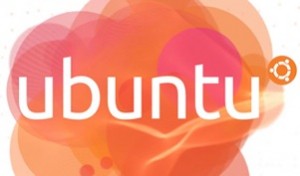

ubuntu logo 2
We knew Ubuntu was “Linux for human beings.” Aiming to catch the current cloud computing wave, Canonical has now also officially deemed Ubuntu as “the cloud OS.” But what exactly does the claim mean to cloud services providers (CSPs) and potential Ubuntu channel partners?It’s no secret that Canonical’s been pushing Ubuntu’s cloud-centric features hard in recent months. We’ve written frequently here about new tools, like cloud-init, that give Ubuntu a leg up vis-à-vis other distributions in the cloud niche, as well as development trends that place the cloud at the center of the longterm vision for Ubuntu Server Edition.
And more recently still, Canonical issued (in the words of VP of corporate services Neil Levine) a “small flurry” of cloud-related news: namely the release of Ubuntu Enterprise Cloud (UEC) on Dell servers, official support for the OpenStack cloud management infrastructure and the introduction by Autonomic Resources of a UEC-based product for federal agencies in the United States.
Developments like those make clear that Canonical is hedging the longterm viability of the Ubuntu project–not to mention Canonical itself–on Ubuntu’s ability to generate real revenue in the cloud market. Even as Ubuntu’s most dynamic source of popularity remains the desktop, where the distribution enjoys unparalleled popularity among users and on which Canonical continues to push innovations like the Unity interface, the actual sustainability of Ubuntu Linux as a whole is rooted deeply in the server room and, especially, the cloud.
The Cloud OS: Theory vs. Practice
Even more specifically, the vision that Canonical is pushing is one in which Ubuntu Server Edition provides the base on which custom-built, self-hosted cloud environments are forged. As Levine explains on Canonical’s blog:
Users can reach a point where even the economics of a licence-free software on a public cloud start to break down. At a certain stage it is simply cheaper to make the hardware investment to run your own cloud infrastructure…The work we have done with OpenStack and with Eucalyptus means Ubuntu is an ideal infrastructure on which to build a cloud. This will typically be for the internal provision of a cloud environment but equally could be the basis or a new public cloud.
This focus is significant because it defines a concrete image of the cloud with a level of clarity utterly lacking in most discourse surrounding this topic. It’s easy–and popular–to talk in ambiguous terms about “the cloud,” and even to declare one’s product “the cloud OS.” But it’s another thing to enunciate a clear conception of what the cloud actually means in practice, and how it can be useful for businesses beyond the relative confines of Amazon’s Elastic Compute Cloud (EC2).
Canonical therefore deserves credit not only for pursuing the cloud as more than a buzzword, but also for developing tangible software–and business strategies to accompany it–that allow users to take advantage of the cloud in what Levine calls a “friction-free” way.
Of course, it’s now up to users to decide whether Ubuntu lives up to the promises with respect to the cloud. There’s no shortage of competition in this niche, and while Levine writes of meeting “more and more tech entrepreneurs who tell us how they have built more than one business on Ubuntu on the cloud,” we have yet to see hard, comprehensive data to prove that Ubuntu is the cloud OS in practice and not just in name.
But this market is young, and we’ll stay closely tuned to Ubuntu’s cloud initiatives as they continue to evolve.
Follow Talkin’ Cloud via RSS, Facebook and Twitter. Sign up for Talkin’ Cloud’s Weekly Newsletter, Webcasts and Resource Center. Read our editorial disclosures here.
About the Author(s)
You May Also Like


